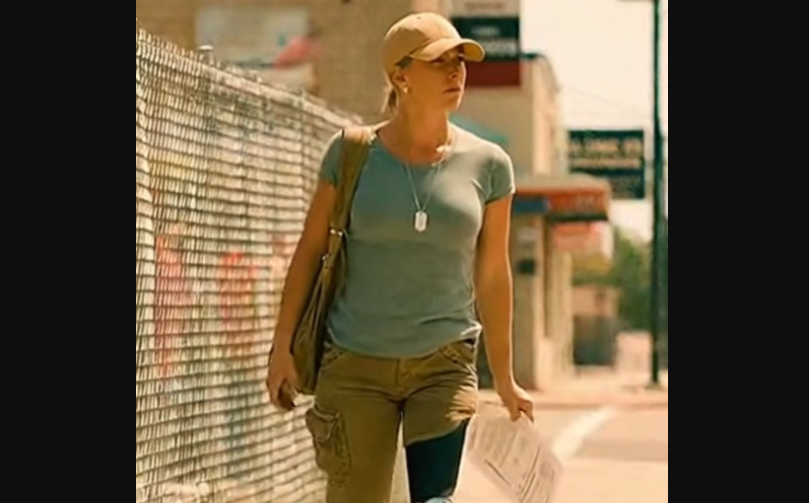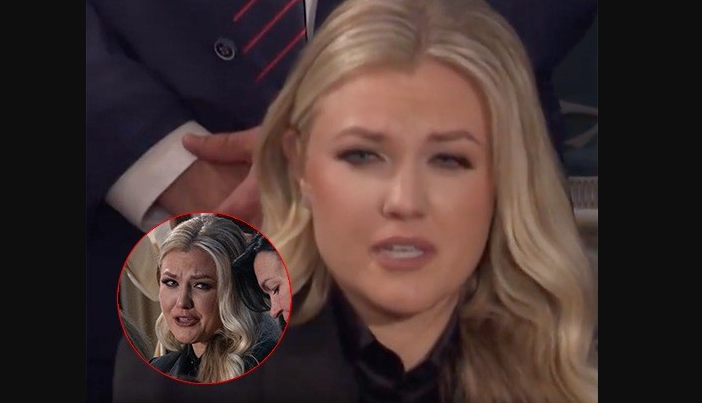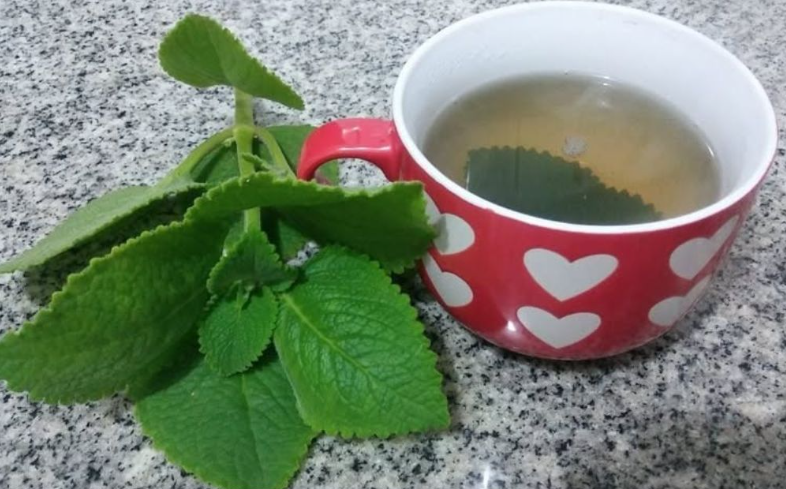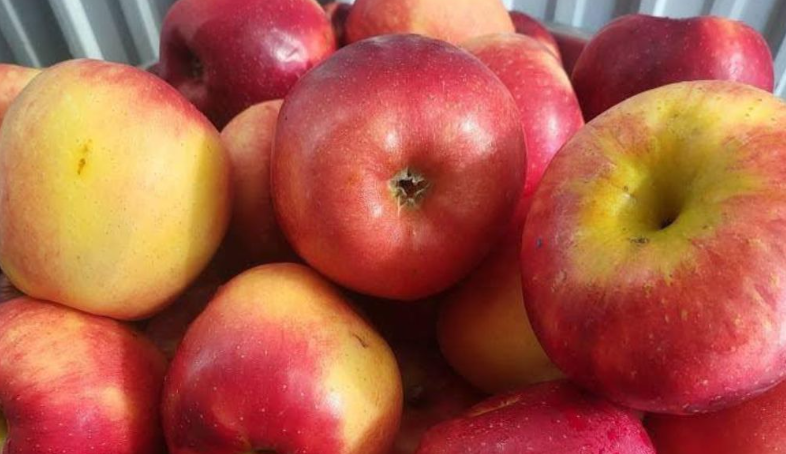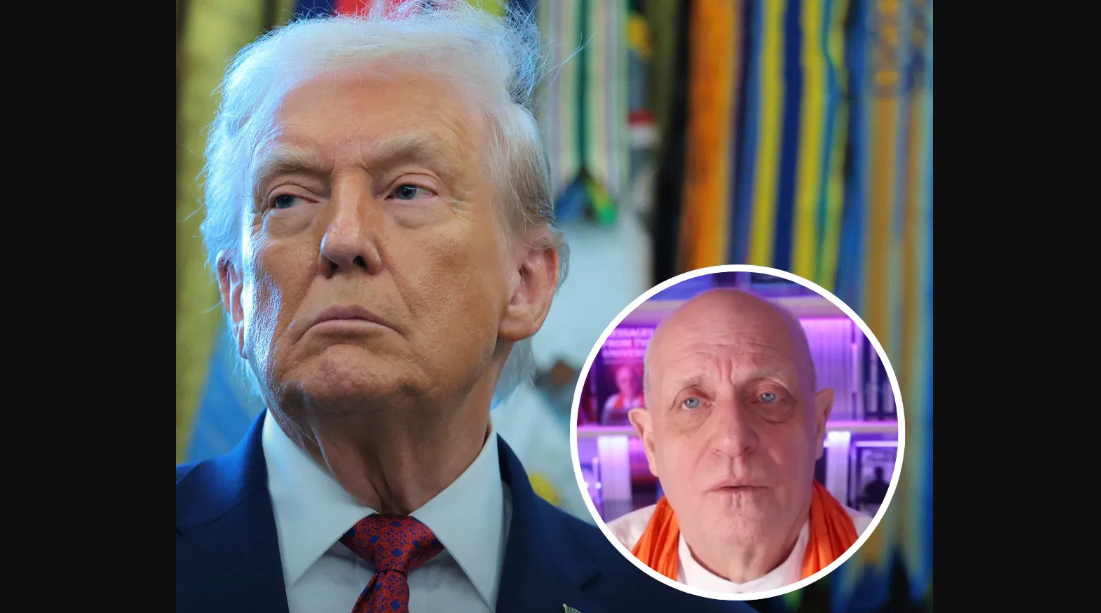In Houston at noon, the sun blazes, sending waves of heat dancing across the pavement. A chain-link fence clatters softly in the warm breeze, while a U.S. flag flutters proudly above a small corner shop.
Sarah Miller, thirty-one, decorated with a Bronze Star and Purple Heart, strides past a construction site. Her steps carry a steady, almost poetic cadence—carbon fiber meeting concrete in a rhythm born of resilience. She’s not seeking conflict. Her destination is the VA clinic across the intersection, where she’ll have her prosthetic socket adjusted and her pain acknowledged.
Laughter erupts behind the fence. A second voice joins in, sharp and mocking. “Yo, Peg Leg—lose a bet with a lawnmower?” The jab lacks wit, aiming to wound. Sarah keeps moving forward.
Her therapist’s words echo: Glide, don’t grind. She knows how to relax her jaw, shift her weight through her heel, and measure her breaths to drown out cruelty. Yet every Marine understands there’s a line where silence shifts from strength to yielding.
Across the street at Murphy’s Diner, a Harley’s key clicks into place. Steel Morrison glances up from his worn coffee mug, spotting the woman who once pulled him through the chaos of Fallujah’s smoke and fire, when the world burned bright and acrid. The laughter reaches his ears again. He leaves his coffee unfinished.
Engines rumble down Main Street, first a single growl, then a chorus, swelling like a summer storm rolling in from the horizon. Sarah pauses, turning at last. “Sir,” she says, her voice calm and firm, “I served three tours so you could work in peace.” The foreman hesitates, mouth open. His crew leans closer, phones raised like sentinels. Sunlight glints off polished chrome.
A dozen motorcycles sweep into view, forming a smooth arc that commands the street’s attention. Helmets come off. Boots hit the ground. A flag patch on a leather vest catches the light. Steel steps forward, his gaze steady, his tone low but commanding. “Good afternoon, gentlemen. Seems you’ve been amusing yourselves with my aunt’s service—”
The foreman blinks, caught off guard. “Wait, what? Your aunt?”
Steel nods once, deliberate. “That’s right. Aunt Sarah. Blood of my blood, warrior of this nation, leg sacrificed to protect your freedom to taunt from behind barriers.”
The crew shifts uncomfortably, their laughter fading like a cut-off radio. A tall worker in a bright vest starts to speak, but an older biker pulls out a phone, filming him before he can finish.
Sarah adjusts her stance. “You didn’t need to do this,” she murmurs to Steel.
He flashes a grin that says, You’d have done it for me. And he’s right. She did.
A biker with a weathered POW-MIA patch steps to the fence, locking eyes with the crew. “Y’all need a refresher on history or respect?”
Another adds, “Jokes are great—unless you wouldn’t tell them to your own family. Maybe think twice before mocking a combat vet with a chest full of honors.”
The foreman tries to brush it off with a chuckle. “Come on, it was only a comment.”
Steel tilts his head. “What’s funny about a woman giving her leg for her country? Lay out the humor. We’ve got time.”
The air grows still, the breeze carrying the moment’s weight.
Sarah exhales, steadying herself. “That’s enough,” she says. “They’re not worth our time.”
Steel shakes his head. “You’re wrong, Auntie. They’re exactly worth it. Growth comes with consequences.”
A burly biker named Knox points at the foreman’s truck parked nearby. “That your ride, boss?”
The foreman glances over, uneasy. “Yeah… why?”
Knox pulls a can of spray paint from his vest—tan, marked with “Semper Fi” in bold letters. “Thought I might spruce it up. Since we’re decorating today.”
The foreman’s face flushes. “That’s vandalism—”
Steel raises a hand, calm but firm. “Nobody’s touching your truck. We’re here to uphold the law, not break it.”
He turns to Sarah. “But you’re coming with us.”
She narrows her eyes. “Where?”
Steel swings a leg over his Harley. “Murphy’s. Pie’s on me. We’ll make some calls, too.”
Sarah pauses, the sting of the encounter still lingering. But his offer feels like a lifeline. She nods.
As the bikes roar away, the crew stands quiet, suddenly absorbed in their tasks. Later, Sarah learns someone captured the scene on video. By evening, it spreads across social media—not a wildfire, but a steady burn.
It burns brightly enough to tag the construction company’s name under “Disrespecting Veterans.”
Brightly enough for veterans’ groups to flood the company’s phone lines with calls.
Brightly enough for the VA clinic to prioritize Sarah’s appointment. She doesn’t question it. She simply shows up.
At Murphy’s, Steel sits across from her, a slice of cherry pie between them. Time has etched deeper lines around his eyes, broadened his frame, but his memory remains sharp.
“You saved me,” he says, tapping the table. “In Iraq. I don’t forget.”
“I was doing my duty,” Sarah replies.
“And I’m doing mine,” he says. “You’ve got people behind you. You shouldn’t face cowards alone.”
Sarah stays quiet. She’s always carried her scars privately, woven into who she is. But here, surrounded by worn leather jackets and faded diner photos, something shifts inside her.
Days later, a message arrives. A mother from another city writes that her son, inspired by the video, asked his school to hold a Veteran Appreciation Day. A third-grader named Josh, he crafted posters and wrote a speech: “My dad said some people are unkind to soldiers who get hurt. That’s not right. They’re heroes.”
Sarah reads the message repeatedly before typing back.
“Josh, I’m proud of you. You’re doing more than most grown-ups. Keep speaking up.”
More messages follow. Small waves of kindness, sparked by people moved by a moment of dignity defended.
Steel calls days later. “You in for something bigger?”
Sarah smiles. “Define ‘bigger.’”
“A veteran ride through Houston. Stops at schools, hospitals, maybe that construction site—if they’re still around. A reminder of what honor means.”
Sarah pauses briefly. “Got a spare helmet?”
The ride happens the following Saturday. Bikers from three states roll in, flags flying, chrome gleaming. Sarah rides behind Steel, the wind rushing past, her prosthetic leg a proud emblem. Crowds gather—some salute, some cheer, some wipe tears.
At a local high school, students ask questions. Not about combat, but about bravery, fear, and returning home transformed.
One boy raises his hand. “Does it still hurt?”
Sarah kneels to meet his gaze. “Sometimes. But kindness heals.”
The ride ends back at the construction site. The fence is gone. So is the crew. The company issued an apology and launched a veteran hiring initiative. Sarah didn’t need their words—she valued their actions.
Steel hands her a patch from his vest. “This is yours. Earned in Fallujah, claimed today.”
Sarah traces the stitching. “What’s it mean?”
“You’re never alone,” he says.
That night, Sarah sits at home, her prosthetic off, the familiar ache settling in. She scrolls through new messages—people thanking her for standing tall when others tried to cut her down.
She doesn’t see herself as a hero. Only a Marine. Someone who keeps going.
But sometimes, the smallest choices—walking past cruel words, standing firm while others mock, or choosing pie over anger—ignite something greater.
Because silence isn’t always power, and standing up can ripple beyond a single moment.
If you see someone who served, someone who struggles, or someone who walks differently because they’ve walked through fire—don’t mock. Listen. Or better, stand beside them.
Your small act of kindness might echo through someone’s pain, lighting a path forward.
If this story moved you, share it. Someone needs to know dignity can still shine, and strength often speaks softly.
